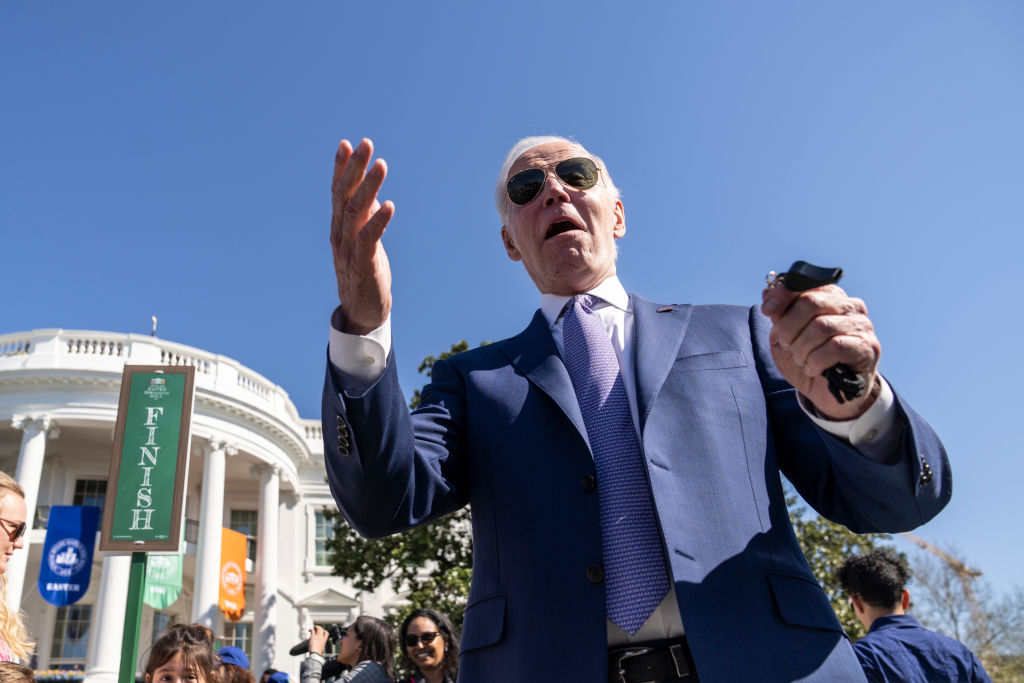President Joe Biden signed legislation on Monday, April 10, that officially terminates the National COVID Emergency, marking a unique bipartisan victory that the man himself would prefer not to have happened. The administration insisted on numerous occasions that Biden would repeal the Coronavirus measures on May 11, but with a GOP House majority and a 69-23 vote in the Senate, the commander-in-chief reluctantly acquiesced to the accelerated timeline.
But what of the Build Back Better mantra that was chanted by world leaders – the “unique opportunity” presented by a once-in-a-generation pandemic to rebuild society in a more “equitable” way?
COVID Rubber Meets Reality Road
As early as June 2020, the Organisation for Economic Co-operation and Development (OECD) – of which the US is a founding member – set out the blueprint for a worldwide recovery that could fundamentally reshape how societies operate. The group wrote:
“For the economic recovery from the COVID-19 crisis to be durable and resilient, a return to ‘business as usual’ and environmentally destructive investment patterns and activities must be avoided. Unchecked, global environmental emergencies such as climate change and biodiversity loss could cause social and economic damages far larger than those caused by COVID-19.”
Joe Biden, Canadian Prime Minister Justin Trudeau, British PM Boris Johnson (and his numerous successors), and New Zealand’s Jacinda Ardern, are just three of the many leaders who signed up for the “Build Back Better” proposals. While the OECD proclaimed that “Central to this approach is a focus on well-being and inclusiveness,” the practical effects were unprecedented spending on what many would consider progressive wish lists.
In July 2020, the World Economic Forum (WEF) signed up to the whole idea, headlining a plan under the banner: “To build back better, we must reinvent capitalism. Here’s how.” The forum posits:
“A true recovery from COVID-19 will not be about putting things back together the way they were: we need to ‘build back better’, to ‘reset’, if we are to address the deep systemic vulnerabilities the pandemic has exposed. For businesses, building back better is about much more than corporate social responsibility: it is about truly aligning markets with the natural, social and economic systems on which they depend. It is about building real resilience, driving equitable and sustainable growth, and reinventing capitalism itself.”
Sound familiar?
The Never-ending Emergency?

(Photo by Drew Angerer/Getty Images)
The White House released a short – perhaps even terse – one sentence memo that read: “On Monday, April 10, 2023, the President signed into law: H.J.Res. 7, which terminates the national emergency related to the COVID-19 pandemic.” And with that, many levers of control and spending are at least partially rescinded.
In December 2021, Senator Joe Manchin (D-WV) scuttled the flagship BBB program as the lone holdout in his party. Yet the tenets of the legislation simply transitioned into other spending packages.
COVID and Build Back Better are inextricably entwined; the measures taken to alleviate the pandemic difficulties were formulated through the lens of building back better. Indeed, even though the pandemic is now over, many of the policies implemented in response have become the “new normal,” and the spending it entailed will be on the national books for generations to come.
The end of the COVID National Emergency does not mean that the Build Back Better agenda will wither on the vine. In fact, given the stated goal of progressive Democrats to align with the ambitions of the OECD and the WEF, one would be hard-pressed to tell the difference.



